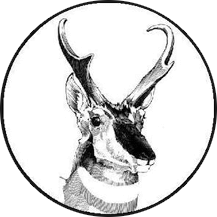About the Committee
Chair
- Verity L. Mathis (vmathis@flmnh.ufl.edu)
Members
|
|
|
History and Mission
Established as a standing committee by the Board of Directors in 1993, and the mission statement revised in 2009, the Public Education Committee seeks to make information about mammals accessible to grades K-12 in formal education settings and to everyone in informal settings. Committee members foster outreach projects in our society to raise awareness of mammals for children and adults. The committee coordinates its efforts with the assistance of other ASM committees, sister societies, informal public educational organizations, as well as elementary and high school science teachers.
Responsibilities
The Public Education Committee conducts several activities including the Public Education Partnership (PEP)which is an initiative to encourage activity and visibility of ASM members in their local K-12 classrooms. This initiative was launched at the 1995 annual meeting at the University of Vermont with 64 charter members.
The Committee also developed and maintains a program, the ASM SCIENCE FAIR AWARDS, to promote and encourage involvement of students in the study of mammalogy. The program is designed to recognize student participation in science fairs and academies. Certificates of achievement can be awarded by ASM members (or appropriate proxy) to those students working with mammals and whose studies meet the guidelines and criteria of the program. Copies of the guidelines and certificates are maintained by the Committee Chair.
The Committee also serves as a Clearinghouse on information on mammals for K-12 teachers and is working to develop state lists of mammals.
Science Fair
ASM Science Fair Awards
To promote and encourage involvement of students in the study of mammalogy, a program designed to recognize student participation in science fairs and academies has been developed by ASM. Certificates of achievement can be awarded by ASM members (or appropriate proxy) to those students working with mammals and whose studies meet the guidelines and criteria of the program. For copies of the guidelines and certificates, contact:
Activities
To view our state-specific lists of indigenous mammals please visit the About Mammals section of our web site, or click on Lists of Mammals in the Quick Links on our home page.
Reports
Clearing House
Clearinghouse for K-12 teachers
Cute, Cuddly, and Fascinating
Most students can identify with mammals, but can they identify the local mammal species? Do they know what makes an animal a mammal? Do they understand how the lives of mammals interface with other organisms, including humans?
The American Society of Mammalogists shares with fellow scientists in other disciplines a concern for the science literacy of our country's youth, and would like to help. We can provide assistance in:
-
locating a local mammalogist to:
- speak to your class
- acquire live mammals from your local habitat
- construct mammal "units" to meet your specific needs
- consult for science fair projects dealing with mammals
- learn about possible summer opportunities to participate in mammal research (students or teachers)
- acquiring slides of mammals from around the world
- awards for science fair projects on mammals
- career opportunities in mammalogy
For assistance, contact the ASM Public Education Committee
Public Education Committee
Barbara J. Shaw
Colorado State University Extension
Friendship Hall
1001 N. 2nd Street
Montrose, CO 81401
Our goal is to establish a clearing house for mammal - related activities which will educate/entertain your students. To this end, descriptions and comments on activities that you have already tried will be gratefully accepted.
PEP
Public Education Partnership
The Public Education Partnership (PEP) is an initiative to encourage the activity and visibility of ASM members in their local K-12 classrooms. This initiative was launched at the 1995 annual meeting at the University of Vermont with 64 charter members. Our goal is to enlist 20% of the ASM membership by the 1998 meetings. You qualify for "partner" status by fulfilling either of the following requirements:
A. Conducted two of the activities below in the past academic year, OR
B. Conducted three activities below in the past three years
Possible Activities:
-
Shared expertise with with K-12 students, such as:
- gave a guest lecture
- gave a tour
- led a field trip
- judged a science fair
- mentored a student.
- Loaned material (specimens, books, slides, posters, etc.) to a K-12 teacher.
If you meet these criteria, we want to recognize you. Please contact us so we can add your name to our list and send you a PEP badge. If you do not meet the criteria, but would like to, we have a PEP "Starter Kit" that will help you to cross that bridge to the K-12 classroom. To join or request a Starter Kit, contact:
Barbara J. Shaw
Colorado State University Extension
Friendship Hall
1001 N. 2nd Street
Montrose, CO 81401
cell: 360-513-7916
email: barbara.shaw@colostate.edu
